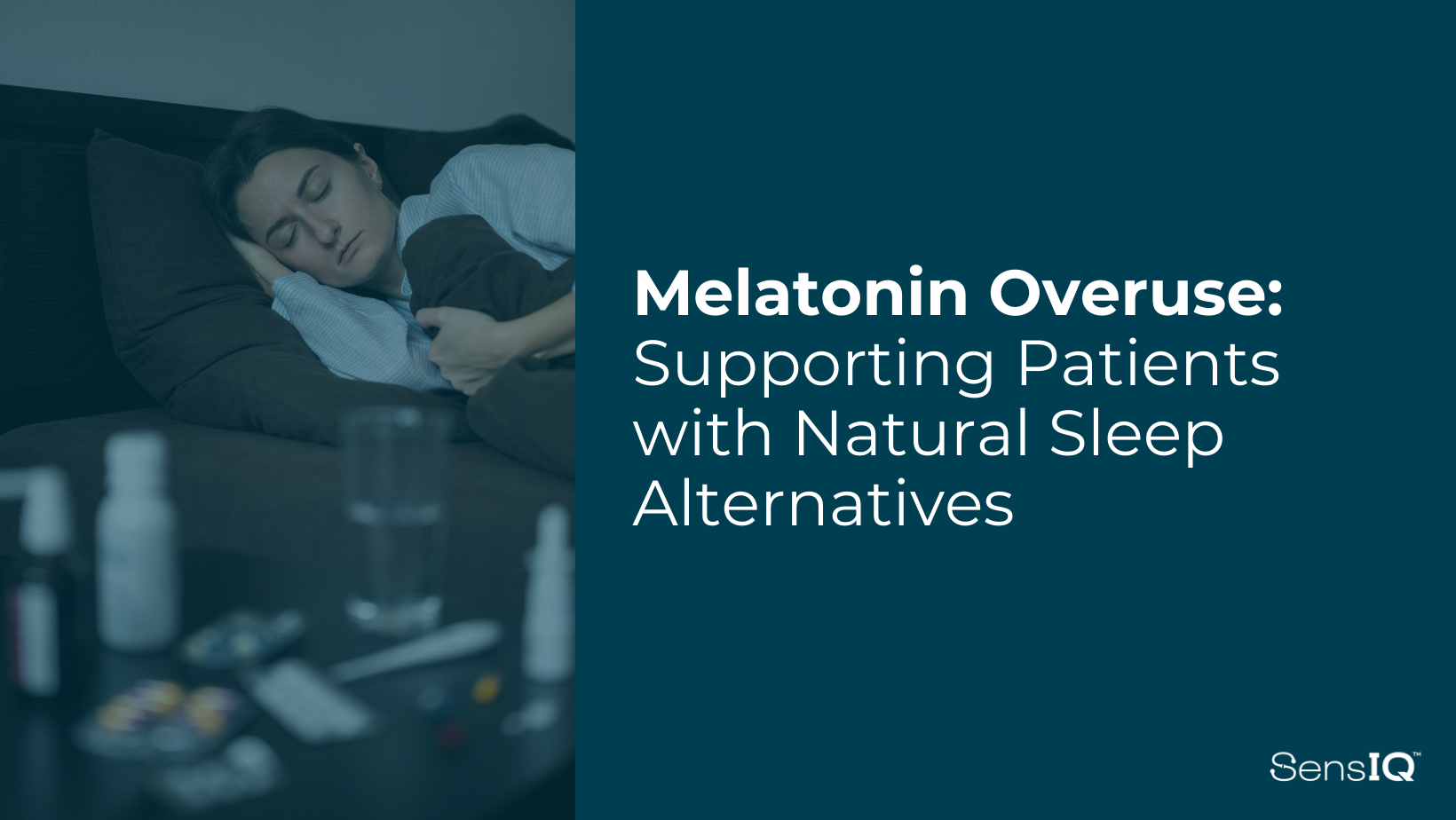Melatonin Overuse: Supporting Patients with Natural Sleep Alternatives
Recent statistics show an increasing prevalence of sleep issues, with approximately 35% of adults reporting insufficient sleep on a regular basis (CDC, 2022). The surge in demand for sleep solutions has driven a notable rise in melatonin supplement use, often without proper guidance (Mayo Clinic, 2023).
When it comes to recommending appropriate dosages, it’s crucial for healthcare professionals to understand that melatonin dosages can vary widely based on individual needs. The general recommendation is to start with a low dose, typically around 0.5 mg to 1 mg, taken 30 minutes before bedtime. Many individuals, however, consume doses ranging from 3 mg to 10 mg, often without proper guidance, which increases the risk of experiencing unwanted side effects and dependency due to the misguided belief that higher doses will yield better results (Mayo Clinic, 2023).
Overall, while the market for melatonin supplements continues to expand, it’s essential to prioritize education on safe usage and promote the exploration of more sustainable sleep solutions to address this growing public health concern.
Sleep Solutions
Melatonin-Free Sleep Aid Alternatives
For patients seeking melatonin-free solutions, natural alternatives such as Ashwagandha, L-Theanine, Valerian Root, and Magnesium offer effective sleep support:
-
Ashwagandha reduces cortisol levels and improves stress-related sleep disruptions (Chandrasekhar et al., 2012).
-
L-Theanine promotes relaxation by modulating neurotransmitters like GABA, serotonin, and dopamine (Nathan et al., 2006).
-
Valerian Root enhances sleep onset and quality by increasing GABA levels (Bent et al., 2006).
-
Magnesium supports muscle relaxation and nerve function, further easing the transition into restorative sleep.
Healthcare professionals can guide patients toward these natural options, minimizing the risks associated with synthetic sleep aids.
Natural Sleep Alternatives: A Holistic Approach
Adopting a holistic approach to sleep health focuses on sustainable lifestyle changes:
-
Consistent Sleep Schedules: Regulates the body’s circadian rhythms.
-
Sleep-Conducive Environments: Minimizes exposure to blue light and distractions before bedtime.
-
Relaxation Techniques: Practices like yoga, meditation, and deep breathing improve sleep quality (Cralle, 2020).
-
Dietary Adjustments: Avoiding stimulants like caffeine before bed supports natural sleep cycles.
Encouraging these strategies alongside natural supplements can empower patients to achieve long-term improvements in sleep health.
Introducing SensIQ Sleep
Ingredients and Benefits
SensIQ Sleep offers a melatonin-free formula designed to promote better sleep with its thoughtfully chosen blend:
-
Ashwagandha: Reduces stress and supports restful sleep.
-
L-Theanine: Eases mental tension and improves relaxation.
-
Magnesium: Enhances muscle relaxation and sleep depth.
-
Valerian Root: Aids in reducing sleep latency and promoting restorative rest.
This natural blend aligns with holistic sleep health principles, helping patients achieve sustainable sleep without the drawbacks of melatonin use.
References
-
Bent, S., Padula, A., Moore, D., Patterson, M., & Mehling, W. (2006). Valerian for sleep: A systematic review and meta-analysis. The American Journal of Medicine, 119(12), 1005-1012. https://doi.org/10.1016/j.amjmed.2006.02.026
-
Centers for Disease Control and Prevention (CDC). (2022). CDC – Data & statistics – Sleep and sleep disorders. Retrieved from https://www.cdc.gov/sleep/data_statistics.html
-
Chandrasekhar, K., Kapoor, J., & Anishetty, S. (2012). A study of safety and efficacy of Ashwagandha root in reducing stress and anxiety. Indian Journal of Psychological Medicine, 34(3), 255-262. https://doi.org/10.4103/0253-7176.106022

